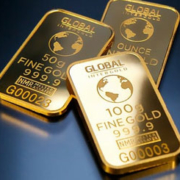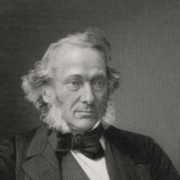Gold Bugs: Swivel-eyed, Mad-eyed, Lunatic Fringe?
Many of the authors and Cobden Centre advisory board members (including some distinguished academics) would like to see money eventually re-rooted back into some kind of commodity backing. Why? Simply put: the record of government control of the peoples’ money has been catastrophic! I have said here before:
One ounce of gold today is worth $1,093.40 and 1/20 oz therefore $54.67 but the dollar pre World War I was just a name in the USA for 1/20 of an ounce of gold: what would have cost $1 before World War I would cost $54.67 today. The dollar has lost its purchasing power. In fact it has lost 98.17% of its purchasing power in 100 years. One dollar today should buy something like a single person’s weekly food shop, not a single daily newspaper. The fate of the pound sterling has been even worse than that of the dollar. One ounce of gold today is £692.26. So if a pound sterling pre World War I was just a name in the UK for 1/4 of an ounce of gold, it would imply that the pre World War I purchasing price was 1/4 of £692.26 or £173.06. In fact the pound sterling has lost 99.42% of its purchasing power in 100 years. One pound should buy something like a good week’s food shop for a family of four and not just one daily newspaper like it would today.
This was written at the start of this year, so the figures are actually even worse now! Governments do not like the gold standard as it forces them to be honest with our money. Thus, if they have created the conditions for a credit induced boom, they hope a bust can be worked out of the system, for example, by the currency depreciating against other currencies. Under a gold standard, gold (money) would exit the country and cause a deflationary correction by forcing prices down to their real market clearing levels. Politicians do not get re-elected telling voters the unfortunate truth that they have been living beyond their means and that there is no magic fix to the prior problems created by excessive credit expansion. The basic needs of human society are often mediated via the price mechanism. By this, I mean virtually all our essential goods and services that sustain our needs are transacted via the medium of money. This allows entrepreneurs to allocate resources where they are most urgently needed. Artificial bubbles in the price mechanism prevent this smooth allocation from happening. The Greenspan bubble in the USA and the Brown bubble here are testament to the power of governments to be popular while sowing the seeds for the actual destruction of our wealth. With the retail price index at nearly 5%, we are having a sizeable potion of our wealth confiscated each year, silently and by stealth, as the biggest single indebted entity being the State itself, engineers, lower real repayments of capital and interest. Never in our lifetime have we seen such distortion and such uncertainty. Why did we leave honest money behind? How often are you told you are swivel-eyed, mad-eyed or a loony tune when you ask “what about linking money back to gold?” Indeed, Robert Zoellick dared to ask that when he suggested that gold may well form a small part of a new world-wide money system, and was roundly and rudely sounded down. The pundits remind us that during the 1930s the recession was deepened massively by the gold standard, and some even argue it caused the recession! Revisionist history is fashionable, as we know, but I would encourage a look at the facts.
Churchill, posturing and the overvaluing of GBP when returning to the gold standard
Churchill as Chancellor of the Exchequer had his moment when sadly for us, he contributed massively to the Great Depression. During World War I, the expenditure on the military was facilitated when the payment of promissory notes (redeemed in gold) was suspended, leaving bank-created credit unconstrained. If you borrowed at a rate that was $4.87 and could pay your government debt back at a rate of $4.87 even though the real worth had now fallen to $3.40, you are paying back much less. Under some odd posturing suggesting there was a need to establish pre war parity with our great trading partner and lender, seeming to hang onto the notion that we might still be their equal, Churchill, in his worst economic act, sought to mis-price money at an overvalued rate.
None was more open to the thought of these past glories than the then Chancellor of the Exchequer, Winston Churchill, for whom the past was part of life itself and also a rich source of family prestige and personal income. His address to Parliament on 28 April 1925 announcing the return to gold was a Churchillian occasion. The self-governing dominions, he observed, had moved or were moving to re-establish the gold standard, so over the whole of the British Empire there would be ‘complete unity of action’. The success of the step was being ensured by American support – $200 million from the Federal Reserve Bank of New York, $100 million from J. P. Morgan. The consequence would be a great revival in international and intra-imperial trade. Hence-forth nations united by the gold standard would ‘vary together, like ships in harbour whose gangways are joined and who rise and fall together with the tide’. As a minor defect, gold could be had only for export. There would be no more gold coins. The New York Times reported next day that, according to opinion expressed in the lobby’, the Chancellor’s speech was one of the ‘finest in a long line’ and ‘fully up to his own high reputation as a parliamentary orator’. Its headline said that Churchill’s proposals had carried ‘PARLIAMENT AND NATION TO HEIGHTS OF ENTHUSIASM’.( New York Times, 29 April 1925) Sixteen years later Churchill would be well cast; no man was so well equipped to make the lion roar. In 1925, both he and oratory were, without doubt, a misfortune…… The error they defended was in restoring the pound to its pre-war gold content of 123.27 grains of fine gold, its old exchange rate of $4.87. In 1920, the pound had fallen to as low as $3.40 in gold-based dollars. Though it had since gained and was still gaining, the pre-war gold content and dollar exchange rates were far too high. That was because, for these rates, British prices were far too high. Because of this high British prices anyone possessed of gold or dollars could do better by exchanging them for the money of one of Britain’s competitors and buying there. And Englishmen likewise could do better by exchanging pounds for dollars, gold or other currencies at the favourable Churchillian rate and buying abroad. In 1925, the price advantage in doing so was about 10 per cent. Exports, as always, were essential for Britain. So, other things equal, British coal, textiles and other manufactured tools could only become competitive at the new exchange rates if their prices were to come down by approximately 10 per cent. A very uncomfortable process” (Background and consequences of Winston Churchill’s House of Commons “Gold Standard budget Speech”, from “Money: Whence it came, where it went” by John Kenneth Galbraith (First Published 1975), Page 174 to 178)
when Britannia ruled the waves and the pound was regarded with respect and awe in all the world’s money markets. They assumed that the restoration of the pound’s parity with the American dollar would re-establish Britain’s pre-war prosperity. None seemed to realize that England had squandered its wealth between Sarajevo and Versailles, or that the country’s shrunken export trade could no longer provide the surplus needed to re-establish London’s fiscal ascendancy over the rest of the world (The Last Lion: Winston Spencer Churchill Visions of Glory 1874-1932″ by William Manchester, Copyright William Manchester 1983, Sphere Books Ltd, 1984. pp 568-570. , Pages 645 to 649)
What we can learn from this is that just like the despotic Nero or Henry VIII who debased their currency to enrich their Treasury, Churchill through vainglory and a puffed-up belief in the importance of the role of our nation in the world, sought to overvalue money, leading to a massive outflow of money as people would move their gold to where it was sold for more purchasing power, as Gresham’s law dictates. Also, with all our exports being greatly overvalued, large sections of industry became uncompetitive. Much as I acknowledge Churchill’s greatness in his leadership during the War, his conduct during the Great Depression made it deeper and longer than it should have been via his misuse of the people’s money. Governments have a truly appalling record at pricing money, this is but one example. Glory the gold bugs and we will celebrate the day when hapless politicians have nothing to do with our money. The one thing for sure is that government itself if not responsible enough to have this unique control of our money.



![gold1[1]](https://tobybaxendale.com/wp-content/uploads/2013/07/gold11-180x180.jpg)





